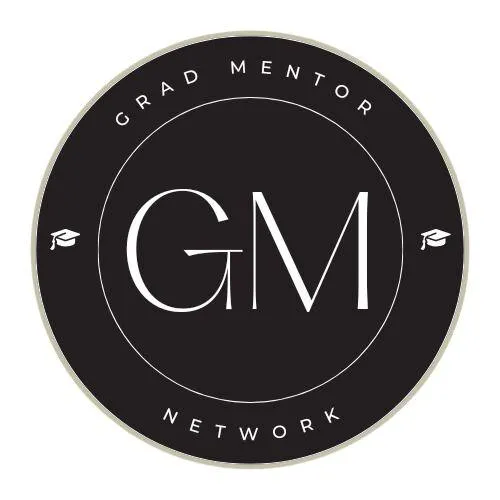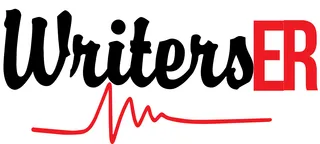

Welcome to the Grad Mentor Network
Unlock Your Academic Potential with Our Exclusive Membership Plans

WHO WE ARE
Unlock Success with Tailored Academic Support
At Grad Mentor Network, led by Dr. Robinson and showcased on renowned platforms such as "Dissertation in 90 Days" and "Club 3E," we offer a comprehensive support system for graduate and doctoral students. Leveraging the expertise of WritersER, which helps master's and PhD candidates achieve approval in six months or less, and our Grad Bootcamps, designed to help students navigate the complexities of academia through bootcamps, our programs are meticulously crafted to support you through every stage of your academic journey. Subscribe today and unlock access to an extensive array of resources, expert guidance, and a supportive community tailored specifically to your academic needs.


Mentoring
Personalized guidance from experts, including Dr. Robinson, to help members navigate their academic journey effectively.

Resources
Access to a comprehensive library of study guides, templates, and specialized training materials tailored for graduate and doctoral studies.

Community
Connection to a private online network where members can interact, share experiences, and support each other through their academic challenges.
Tier 1:
Essential Support - $19/month
Podcasts
Tune in to five weekly podcast episodes packed with strategies for dissertation success, effective time management, research methodologies, and tackling graduate challenges.
Community Access
Join our exclusive online community to connect with peers, share your journey, and find support from fellow students.
Newsletters
Receive five weekly newsletters filled with actionable advice, insightful tips, and motivational content designed specifically for graduate and doctoral students.
Live Q&A Sessions
Engage in our monthly live Q&A sessions with Dr. Robinson and other field experts, designed to answer your burning questions and provide personalized guidance.
Tier 2:
Advanced Support - $49/month
(Includes Tier 1)
GradCoach.io App Access Coming Soon
Get tailored training covering everything from proposal writing to thesis defense, exclusively designed for PhD and Master's students.
Weekly Live Training
Participate in live interactive sessions that delve into essential aspects of the academic journey, offering real-time feedback and personalized advice.
Resource Library
Study guides, templates, and essential research tools sent to your email.
Exclusive Discounts
Enjoy special discounts on Grad Mentor Network-branded merchandise and academic tools.
Digital Calendar
Start each month with a new, beautifully designed digital calendar wallpaper.
Tier 3:
Premium Support - $79/month
(Includes Tiers 1 and 2)
Dissertation Tools
Access downloadable exercises and worksheets tailored for each phase of your dissertation, keeping you organized and on track.
Monthly Digital Product
Receive a new digital product each month, such as e-books, specialized training videos, or unique templates.
Monthly Mastermind Sessions
Join small group mastermind sessions that focus on specific academic challenges, offering tailored solutions and peer support
One-on-One Mentoring
Benefit from two personal mentoring sessions per month, providing you with expert guidance tailored to your individual needs.
Priority Support and Exclusive Content
Enjoy priority email support and behind-the-scenes looks at training sessions and upcoming projects.
Personalized Editing Support (10 Pages per month)
Receive tailored editing assistance for up to 10 pages each month, ensuring your content is polished and professionally refined to meet your specific needs.
Tier 4:
Exclusive Support - $99/month
(Includes Tiers 1, 2, and 3)
Recognition and Thanks
Be acknowledged by name in all new podcast episodes and video descriptions.
Specialized Webinars
Gain access to exclusive webinars discussing advanced topics like grant writing and career planning in academia.
Personalized Feedback
Receive detailed feedback on your dissertation chapters or research papers from Dr. Robinson or a senior mentor.
Networking Opportunities
Get invitations to virtual networking events with alumni and professionals across various academic fields.
Unique Merchandise
Claim exclusive Grad Mentor Network merchandise not available to other tiers.
Personalized Editing Support (15 Pages per month)
Get customized editing support for up to 15 pages monthly, enhancing clarity, style, and accuracy according to your unique requirements.
Tier 5:
Ultimate Support - $109/month
(Includes Tiers 1, 2, 3, and 4)
Social Media Recognition
Receive a monthly shoutout by name on our social media platforms and YouTube community tab.
On-Screen Credits
Enjoy on-screen recognition as a co-sponsor in every episode of our podcasts and training videos.
VIP Access
Get exclusive tickets to VIP events and workshops, designed to elevate your academic and professional connections.
Advanced Mastermind Sessions
Engage in weekly advanced mastermind sessions with high-achieving peers and field experts.
Exclusive Content Feed
Dive into an exclusive content feed filled with behind-the-scenes updates, additional resources, and more.
Free Books
Enjoy a free book every month from the Doctoral Chronicles Series or authored by Dr. Robinson, up to 12 books a year.
Resources

Coaching and Editing Support for your Dissertation

Books, Newsletters and Podcasts

Bootcamps

TAKING A FRESH LOOK
Membership Tiers
Tier 1
1 Month Essential Support
$19
Weekly Podcasts
Motivational Newsletters
Private Community
Monthly Q&A
Tier 2
1 Month Advanced Support
$49
Tier 1
App Access
Live Training
Resource Library
Merchandise Discounts
Tier 3
1 Month Premium Support
$79
Tier 1 & 2
Dissertation Tools
Digital Products
Bi-Weekly Mastermind
One-on-One Mentoring
Tier 4
1 Month Exclusive Support
$99
Tier 1, 2 & 3
Name Recognition
Specialized Webinars
Personalized Feedback
Networking Events
Tier 5
1 Month Ultimate Support
$109
Tier 1, 2, 3 & 4
Social Media Shoutout
On-Screen Credits
VIP Event Access
Advanced Mastermind
Resource Milestones
Expansive Collection of Guides, Templates, and Training Materials

5,000+
Downloads Achieved

1,200+
Resources Created

Recent Blogs

Mastering Academic Writing: Tips and Techniques for Graduate Students
Mastering Academic Writing: Tips and Techniques for Graduate Students
Introduction
Academic writing is a critical skill for graduate students, but it often presents challenges. Whether you’re working on essays, research papers, or your dissertation, mastering the art of academic writing is essential for success. At WritersER, we’re committed to helping African American women in graduate programs excel. This guide offers practical tips and techniques to enhance your academic writing skills, ensuring your work is clear, concise, and impactful.

1. Understanding Academic Writing
Academic writing has its own set of conventions and expectations. Understanding these can significantly improve your writing.
1.1 The Importance of Clarity and Precision
Academic writing demands clarity and precision. Your arguments must be clear and your language precise.
Avoid Ambiguity: Ensure your sentences convey a clear, unambiguous message.
Use Specific Terms: Avoid vague terms and generalizations. Be as specific as possible.
Be Concise: Eliminate unnecessary words. Every word should add value to your writing.
1.2 Developing a Strong Thesis Statement
A strong thesis statement is the backbone of your academic paper.
Be Clear and Specific: Your thesis should clearly state your main argument or position.
Position Your Thesis: Typically, place your thesis statement at the end of the introduction.
Refine Your Thesis: As your paper evolves, revisit and refine your thesis to ensure it remains relevant and focused.
1.3 Structuring Your Paper
A well-structured paper is easier to follow and more persuasive.
Introduction: Introduce your topic, provide background, and state your thesis.
Body Paragraphs: Each paragraph should focus on a single point that supports your thesis.
Conclusion: Summarize your arguments, restate the thesis in light of the evidence presented, and suggest further research or implications.
2. Enhancing Your Writing Style
Your writing style plays a crucial role in how your work is received and understood.
2.1 Adopting a Formal Tone
Academic writing requires a formal tone.
Use Third Person: Avoid using first-person pronouns (I, we) unless specifically allowed.
Avoid Colloquialisms: Use formal language and avoid slang or informal expressions.
Be Objective: Present your arguments and evidence impartially.
2.2 Varying Sentence Structure
Varied sentence structure can make your writing more engaging and readable.
Mix Simple, Compound, and Complex Sentences: Use a variety of sentence structures to maintain reader interest.
Use Transitional Phrases: Connect your ideas with transitional phrases to ensure a smooth flow.
2.3 Utilizing Active Voice
Active voice makes your writing clearer and more direct.
Active vs. Passive: In active voice, the subject performs the action (e.g., "The researcher conducted the experiment"). In passive voice, the action is performed on the subject (e.g., "The experiment was conducted by the researcher").
Preference for Active Voice: Use active voice whenever possible to make your sentences more dynamic and clear.
3. Strengthening Your Arguments
Strong arguments are the foundation of persuasive academic writing.
3.1 Supporting Claims with Evidence
Every claim you make should be supported by evidence.
Use Reliable Sources: Ensure your evidence comes from credible and scholarly sources.
Cite Appropriately: Use the appropriate citation style for your field (e.g., APA, MLA, Chicago).
Analyze, Don’t Just Describe: Explain how the evidence supports your claims and why it is significant.
3.2 Addressing Counterarguments
Acknowledging and addressing counterarguments strengthens your position.
Identify Potential Counterarguments: Consider what objections someone might have to your thesis.
Refute or Concede: Provide evidence to refute counterarguments, or concede valid points while explaining why your thesis still holds.
3.3 Using Logical Reasoning
Logical reasoning ensures your arguments are coherent and persuasive.
Avoid Logical Fallacies: Be aware of common logical fallacies (e.g., ad hominem attacks, false dilemmas) and avoid them.
Use Clear and Rational Thought Processes: Ensure each step of your argument follows logically from the previous one.
4. Improving Grammar and Syntax
Proper grammar and syntax are essential for clear and professional academic writing.
4.1 Common Grammar Mistakes
Avoid common grammar mistakes to maintain credibility.
Subject-Verb Agreement: Ensure subjects and verbs agree in number (e.g., "The data are conclusive," not "The data is conclusive").
Pronoun Antecedent Agreement: Ensure pronouns agree with their antecedents (e.g., "Each student must bring their book," not "Each student must bring their books").
Punctuation: Use punctuation correctly to clarify meaning (e.g., commas, semicolons, and colons).
4.2 Sentence Structure and Punctuation
Proper sentence structure and punctuation improve readability.
Avoid Run-On Sentences: Break up long sentences to avoid confusion.
Use Commas Appropriately: Use commas to separate clauses and items in a list, but avoid overuse.
Correct Use of Colons and Semicolons: Use colons to introduce lists or explanations, and semicolons to connect closely related independent clauses.
4.3 Proofreading and Editing
Proofreading and editing are critical steps in the writing process.
Multiple Rounds of Editing: Review your paper multiple times, focusing on different aspects (e.g., content, structure, grammar).
Peer Review: Ask peers or mentors to review your work and provide feedback.
Use Writing Tools: Utilize tools like Grammarly or Hemingway to catch errors and improve clarity.
5. Utilizing Resources and Support
Take advantage of available resources and support systems to enhance your academic writing.
5.1 Writing Centers and Workshops
Many universities offer writing centers and workshops.
Seek Guidance: Utilize writing centers for feedback and guidance on your writing.
Attend Workshops: Participate in workshops to learn new writing techniques and improve your skills.
5.2 Online Resources
Online resources can provide additional support and information.
Writing Guides: Use online writing guides and resources (e.g., Purdue OWL) to understand writing conventions and citation styles.
Academic Databases: Access academic databases for reliable sources and research materials.
5.3 Peer Support and Study Groups
Collaborating with peers can provide valuable insights and support.
Form Study Groups: Join or form study groups to share ideas and review each other’s work.
Peer Review: Engage in peer review to receive constructive feedback and improve your writing.
Conclusion: Enhance Your Academic Writing Skills
Mastering academic writing is a continuous process that requires practice and dedication. By understanding the conventions of academic writing, enhancing your writing style, strengthening your arguments, improving grammar and syntax, and utilizing available resources, you can significantly improve your writing skills. Remember, WritersER is here to support you every step of the way. Visit our website to learn more about our personalized coaching, writing workshops, and academic resources. Let’s make your academic journey a successful and empowering one!
Ready to enhance your academic writing skills? Join the WritersER community today for expert guidance, personalized coaching, and the support you need to succeed. Click here to get started!
Begin Your Journey Today!
Embark on a transformative academic journey with Grad Mentor Network. Choose the membership tier that best suits your needs and become part of a network dedicated to your success. Subscribe now and take the first step towards unlocking your potential in the academic world.
